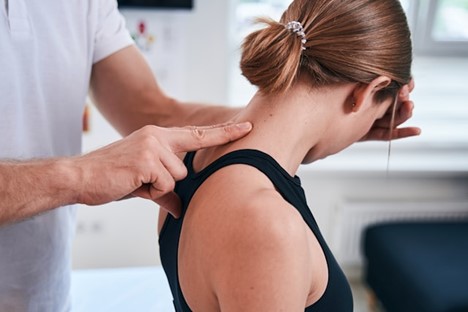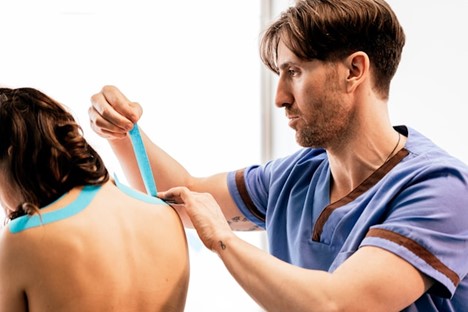Tony Schuster of Spring Lake is a Doctor of Physical Therapy with a passion for helping people discover the benefits of exercise for overall wellness. In the following article, Tony Schuster discusses the link between neck pain and tinnitus and examines how physical therapy can offer relief for both conditions, improving overall patient outcomes.
Neck pain and tinnitus are two conditions that may seem unrelated at first glance, but recent research and clinical observations suggest a significant connection between them. Both conditions can profoundly affect a person’s quality of life, and understanding their interplay is crucial for developing effective treatment strategies.
Tony Schuster of Spring Lake Explains the Effects of These Conditions
Neck Pain
Neck or cervical pain, can result from various causes, including poor posture, muscle strain, or injury. It often manifests as stiffness, discomfort, or sharp pain in the cervical spine. The pain may also radiate to the shoulders, upper back, or arms. Common causes include:
- Muscle Strain: Overuse or incorrect posture can strain neck muscles.
- Herniated Disc: Displacement of a spinal disc can irritate nearby nerves.
- Degenerative Disc Disease: Age-related changes in spinal discs can cause pain.
- Injury: Trauma from accidents or falls can result in neck pain.
Tinnitus
Tinnitus is the perception of ringing, buzzing, or hissing sounds in the ears without an external source. It can be a symptom of various underlying conditions, such as:
- Hearing Loss: Age-related or noise-induced hearing loss is a common cause.
- Ear Infections: Infections can lead to inflammation and tinnitus.
- Medication Side Effects: Some medications may cause tinnitus as a side effect.
- Meniere’s Disease: Tony Schuster of Spring Lake says that this inner ear disorder can cause tinnitus, along with dizziness.

The Connection Between Neck Pain and Tinnitus
Recent studies and clinical observations suggest a notable connection between neck pain and tinnitus. Here’s how these two conditions might be related:
Shared Neurological Pathways
The cervical spine and auditory system share common neurological pathways. Nerves in the neck and the auditory system can interact, leading to overlapping symptoms. For instance, irritation or inflammation in the cervical spine may affect auditory processing, contributing to tinnitus.
Cervical Vertigo
Cervical vertigo, a condition where neck issues cause dizziness and balance problems, may also be associated with tinnitus. When the neck muscles are strained or injured, they can disrupt the normal function of the vestibular system, which is responsible for maintaining balance and spatial orientation.
Poor Posture
Tony Schuster of Spring Lake explains that poor posture, especially with prolonged sitting or computer use, can strain the neck and lead to tension. This tension can affect the surrounding structures, including those involved in auditory processing, potentially exacerbating tinnitus.
Muscle Tension and Stress
Stress and muscle tension in the neck and shoulders can contribute to both neck pain and tinnitus. The stress response may heighten sensitivity to tinnitus, making the symptoms more noticeable.
How Physical Therapy Can Address Both Conditions
Physical therapy offers a holistic approach to treating both neck pain and tinnitus, addressing the root causes and alleviating symptoms. Anton Johann Schuster discusses below how physical therapy can help:
Assessment and Diagnosis
A physical therapist will begin with a thorough assessment to determine the underlying causes of neck pain and tinnitus. This evaluation may include reviewing medical history, conducting physical exams, and performing specific tests to identify any dysfunction or misalignment in the cervical spine.
Targeted Exercises
Physical therapists prescribe specific exercises to strengthen and stabilize the neck muscles. These exercises help improve posture, reduce muscle tension, and increase flexibility. Key exercises may include:
- Neck Stretching: To relieve muscle tension and improve range of motion.
- Strengthening Exercises: To support the cervical spine and reduce strain.
- Postural Training: To encourage proper alignment and reduce strain on the neck.

Manual Therapy
Manual therapy techniques, such as joint mobilization and soft tissue massage, can alleviate pain and improve function in the neck. These techniques help reduce muscle tension, improve circulation, and enhance the overall health of the cervical spine.
Education and Ergonomic Advice
Physical therapists educate patients about proper posture, ergonomics, and body mechanics. They provide guidance on how to set up workstations, avoid repetitive strain, and incorporate healthy habits to prevent further issues.
Tinnitus Management Strategies
While PT primarily focuses on addressing neck pain, it can also include tinnitus management strategies. Techniques such as relaxation exercises, stress management, and cognitive-behavioral therapy (CBT) may be integrated into the treatment plan to help patients cope with tinnitus.
Integration with Other Therapies
Anton Schuster of Spring Lake says that therapists often work in conjunction with other healthcare providers, such as audiologists or otolaryngologists, to provide comprehensive care. This multidisciplinary approach ensures that all aspects of the patient’s condition are addressed effectively.
Conclusion
Tony Schuster of Spring Lake concludes that the connection between neck pain and tinnitus highlights the importance of a comprehensive approach to treatment. By addressing the root causes and employing targeted therapies, physical therapy can significantly improve outcomes for individuals suffering from both conditions. Through a combination of targeted exercises, manual therapy, education, and tinnitus management strategies, physical therapists can help patients achieve relief and enhance their overall quality of life. If you’re experiencing neck pain or tinnitus, consulting with a qualified physical therapist may be the key to finding effective and lasting relief.









